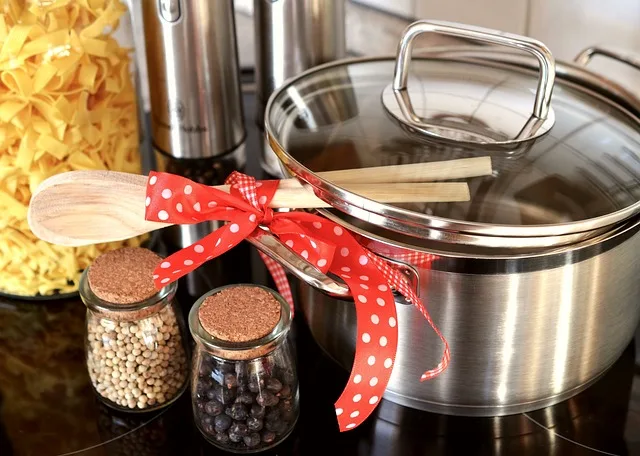First off, you want a cleaner that’s tough on dirt but gentle on the finish. Think of it like finding the perfect dance partner—someone who can handle the heavy lifting without stepping on your toes. A mixture of warm water and mild dish soap is often a go-to. It’s like a warm hug for your cabinets, effectively lifting away the gunk without causing any damage.

If you’re dealing with stubborn stains or sticky spots, a vinegar solution can work wonders. Just mix equal parts of vinegar and water in a spray bottle, and voilà! You’ve got yourself a natural cleaner that cuts through grease like a hot knife through butter. Plus, it’s eco-friendly, so you can feel good about using it.
For those with wood cabinets, you might want to consider a specialized wood cleaner or a simple mix of olive oil and vinegar. It’s like giving your cabinets a spa day, nourishing the wood while keeping it clean. Just remember to test any cleaner on a small, hidden area first—better safe than sorry, right?
Shining Solutions: Discover the Top Cleaners for Your Kitchen Cabinets
First up, we have the classic vinegar and water solution. It’s like the superhero of kitchen cleaning! Just mix equal parts of vinegar and water in a spray bottle, and you’ve got yourself a powerful cleaner that cuts through grease and grime without any harsh chemicals. Plus, it’s safe for all types of cabinet finishes. Who doesn’t love a good multitasker?
Next, consider using baking soda. This isn’t just for your fridge! When mixed with a little water, it creates a paste that can tackle tough stains. Think of it as a gentle exfoliator for your cabinets. Just apply, let it sit for a few minutes, and wipe it away. Voila! Stains be gone!
If you’re looking for something a bit more commercial, there are plenty of eco-friendly cleaners on the market. Brands like Method and Seventh Generation offer products that are tough on dirt but gentle on the environment. It’s like giving your cabinets a spa day while being kind to Mother Earth.

And let’s not forget about the power of microfiber cloths. These little wonders are perfect for buffing your cabinets to a brilliant shine. They trap dust and dirt like a magnet, leaving your surfaces sparkling clean.
So, whether you’re a DIY enthusiast or prefer store-bought solutions, keeping your kitchen cabinets shining is easier than you think!
From Grease to Gleam: The Ultimate Guide to Kitchen Cabinet Cleaners
Imagine your cabinets as the canvas of your kitchen masterpiece. Just like an artist needs the right tools, you need effective cleaners to bring out the beauty in your cabinetry. So, what’s the secret sauce? First off, consider the type of material your cabinets are made from. Wood, laminate, or painted surfaces each have their own cleaning needs. For instance, a gentle soap and water solution works wonders on wood, while a vinegar-water mix can be a game-changer for laminate.
Now, let’s talk about the power of natural ingredients. Have you ever tried using baking soda? It’s like the superhero of the cleaning world! Just sprinkle some on a damp cloth, and watch it tackle those stubborn stains like a champ. And don’t underestimate the magic of lemon juice. Its acidity cuts through grease while leaving a fresh scent that makes your kitchen feel like a sunny day.
But what about those tough, baked-on messes? That’s where a dedicated kitchen cabinet cleaner comes into play. Look for products that are specifically designed to break down grease without damaging your surfaces. A little spray, a quick wipe, and voilà! Your cabinets are back to their former glory.
Cabinet Care 101: Which Cleaner Reigns Supreme in the Kitchen?
First off, you might be tempted to grab any old all-purpose cleaner, but hold your horses! Not all cleaners are created equal, especially when it comes to the delicate surfaces of your cabinets. If you’ve got wooden cabinets, you’ll want to steer clear of harsh chemicals that can strip away the finish. Instead, think of a gentle soap-and-water solution as your trusty sidekick. It’s like giving your cabinets a refreshing spa day—cleaning without the harshness!
Now, if your cabinets are painted or laminate, you can afford to be a bit bolder. A vinegar-water mix can work wonders, cutting through grime like a hot knife through butter. Just remember to rinse with a damp cloth afterward; you don’t want any vinegar residue hanging around like an unwanted guest.
And let’s not forget about those stubborn stains! For those pesky spots that just won’t budge, a baking soda paste can be your secret weapon. It’s like a magic eraser, gently lifting away dirt without scratching the surface. Just apply, let it sit for a few minutes, and wipe away. Voila!
So, whether you’re dealing with wood, paint, or laminate, the key is to choose a cleaner that respects your cabinets while still getting the job done. After all, a clean kitchen is a happy kitchen, and your cabinets deserve the royal treatment!
The Best Kitchen Cabinet Cleaners: A Deep Dive into Effectiveness and Safety
First off, effectiveness is key. You want a cleaner that doesn’t just mask the dirt but actually lifts it away. Look for products that contain natural ingredients like vinegar or baking soda. These are not only powerful against stains but also gentle on your cabinets. Think of them as the superheroes of cleaning—fighting grime without the harsh chemicals that can damage your surfaces.
Now, let’s talk safety. You wouldn’t want to use something that leaves behind harmful residues, especially in a space where you prepare food. Opt for cleaners that are labeled as non-toxic and free from harsh chemicals. It’s like choosing a friend who’s good for you—reliable and safe to have around. Brands that prioritize eco-friendly ingredients are often a great choice, ensuring that your kitchen remains a healthy environment for you and your family.
Transform Your Kitchen: Expert Recommendations for Cabinet Cleaning Products
First off, consider a gentle yet effective cleaner. A mixture of warm water and mild dish soap can work wonders. It’s like giving your cabinets a refreshing spa day! Just grab a soft cloth, dip it in the solution, and wipe away the grime. You’ll be amazed at how much dirt can accumulate over time.
For those stubborn spots, a baking soda paste can be your best friend. Just mix baking soda with a little water until it forms a paste, apply it to the tough stains, and let it sit for a few minutes. It’s like a magic eraser for your cabinets! Rinse it off, and watch those marks disappear.
If you’re dealing with grease, a degreaser is essential. Look for a product that’s safe for wood finishes. It’s like having a superhero in a bottle, ready to tackle the toughest kitchen villains. Spray it on, let it sit, and wipe it away for a sparkling finish.
And let’s not forget about the power of vinegar! This natural cleaner is fantastic for cutting through grime and leaving your cabinets smelling fresh. Just mix equal parts vinegar and water in a spray bottle, and you’re ready to go. It’s like a breath of fresh air for your kitchen!
Frequently Asked Questions
Can I Use Vinegar to Clean My Kitchen Cabinets?
Vinegar is an effective and natural cleaner for kitchen cabinets. It can help remove grease, grime, and stains without harsh chemicals. To use, mix equal parts of vinegar and water in a spray bottle, apply to the cabinets, and wipe with a soft cloth. Always test on a small, inconspicuous area first to ensure compatibility with your cabinet finish.
What Types of Cleaners Are Safe for Kitchen Cabinets?
When cleaning kitchen cabinets, opt for gentle, non-abrasive cleaners to avoid damage. Safe options include a mixture of warm water and mild dish soap, vinegar diluted with water, or specialized wood cleaners for wooden cabinets. Always test a small area first to ensure compatibility.
What Are the Best DIY Cleaners for Kitchen Cabinets?
Effective DIY cleaners for kitchen cabinets include a mixture of vinegar and water, which cuts through grease and grime, and baking soda paste, which can tackle tougher stains. For a natural disinfectant, use a solution of lemon juice and water. Always test any cleaner on a small, inconspicuous area first to ensure it does not damage the finish.
How Do I Remove Grease from Kitchen Cabinets?
To effectively remove grease from kitchen cabinets, start by mixing warm water with a few drops of dish soap. Use a soft cloth or sponge to apply the solution, gently scrubbing the greasy areas. For tougher stains, a mixture of vinegar and water or a baking soda paste can be used. Rinse with clean water and dry with a microfiber cloth to prevent streaks.
How Often Should I Clean My Kitchen Cabinets?
Regular cleaning of kitchen cabinets is essential for maintaining hygiene and appearance. It is recommended to clean them at least once a month to remove dust, grease, and stains. For high-traffic areas or if you cook frequently, consider cleaning them bi-weekly. Additionally, deep cleaning should be done every six months to ensure longevity and prevent buildup.